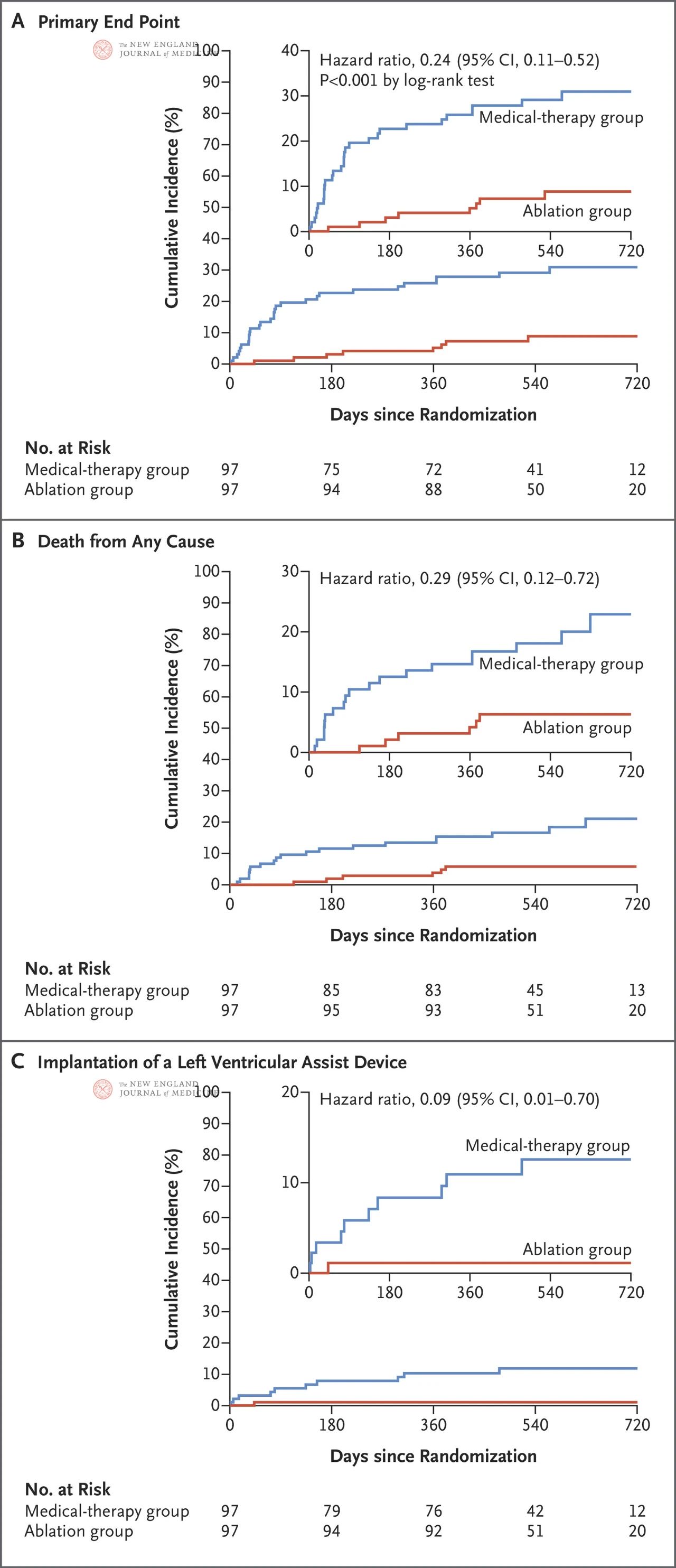With the aging of the population and the advancement of cardiovascular disease diagnosis and treatment, chronic heart failure (heart failure) is the only cardiovascular disease that is increasing in incidence and prevalence. China’s population of chronic heart failure patients in 2021 about 13.7 million, is expected to reach 16.14 million by 2030, heart failure death will reach 1.934 million.
Heart failure and atrial fibrillation (AF) often coexist. Up to 50% of new heart failure patients have atrial fibrillation; Among new cases of atrial fibrillation, nearly one-third have heart failure. It is difficult to distinguish between cause and effect of heart failure and atrial fibrillation, but in patients with heart failure and atrial fibrillation, several studies have shown that catheter ablation significantly reduces the risk of all-cause death and heart failure readmission. However, none of these studies included patients with end-stage heart failure combined with atrial fibrillation, and the most recent guidelines on heart failure and ablation include ablation as a Class II recommendation for patients with any type of atrial fibrillation and reduced ejection fraction, whereas amiodarone is a Class I recommendation
The CASTLE-AF study, published in 2018, demonstrated that for patients with atrial fibrillation combined with heart failure, catheter ablation significantly reduced the risk of all-cause death and heart failure readmission compared to medication. In addition, a number of studies have also confirmed the benefits of catheter ablation in improving symptoms, reversing cardiac remodeling, and reducing atrial fibrillation load. However, patients with atrial fibrillation combined with end-stage heart failure are often excluded from the study population. For these patients, timely referral for heart transplantation or implantation of a left ventricular assist device (LVAD) is effective, but there is still a lack of evidence-based medical evidence on whether catheter ablation can reduce death and delay LVAD implantation while waiting for heart transplantation.
The CASTLE-HTx study was a single-center, open-label, investigator-initiated randomized controlled trial of superior efficacy. The study was carried out at the Herz- und Diabeteszentrum Nordrhein-Westfale, a heart transplant referral centre in Germany that performs about 80 transplants a year. A total of 194 patients with end-stage heart failure with symptomatic atrial fibrillation who were evaluated for eligibility for heart transplantation or LVAD implantation were enrolled from November 2020 to May 2022. All patients had implantable cardiac devices with continuous heart rhythm monitoring. All patients were randomized in a 1:1 ratio to receive catheter ablation and guidance-directed medication or to receive medication alone. The primary endpoint was a composite of all-cause death, LVAD implantation, or emergency heart transplantation. Secondary endpoints included all-cause death, LVAD implantation, emergency heart transplantation, cardiovascular death, and changes in left ventricular ejection fraction (LVEF) and atrial fibrillation load at 6 and 12 months of follow-up.
In May 2023 (one year after enrollment), the Data and Safety Monitoring Committee found in an interim analysis that the primary endpoint events between the two groups were significantly different and greater than expected, that the catheter ablation group was more effective and in compliance with the Haybittle-Peto rule, and recommended immediate discontinuation of the drug regimen prescribed in the study. The investigators accepted the committee’s recommendation to modify the study protocol to truncate follow-up data for the primary endpoint on May 15, 2023.
Heart transplantation and LVAD implantation are essential to improve the prognosis of patients with end-stage heart failure combined with atrial fibrillation, however, the limited donor resources and other factors limit their wide application to some extent. While waiting for a heart transplant and an LVAD, what else can we do to slow the progression of the disease before death sets in? The CASTLE-HTx study is undoubtedly of great significance. It not only further confirms the benefits of catheter ablation for patients with special AF, but also provides a promising path of higher accessibility for patients with end-stage heart failure complicated with AF.
Post time: Sep-02-2023





